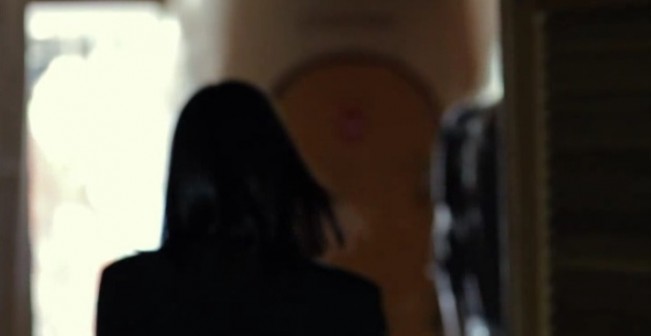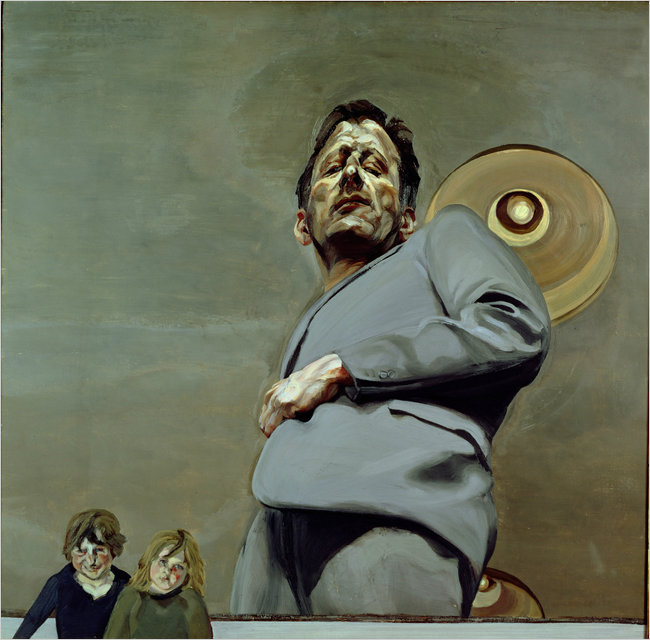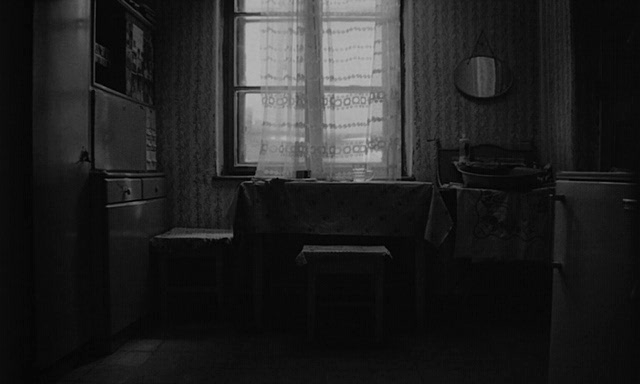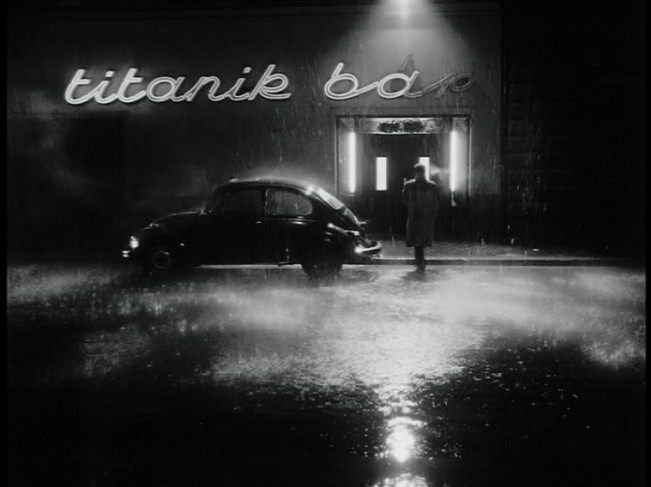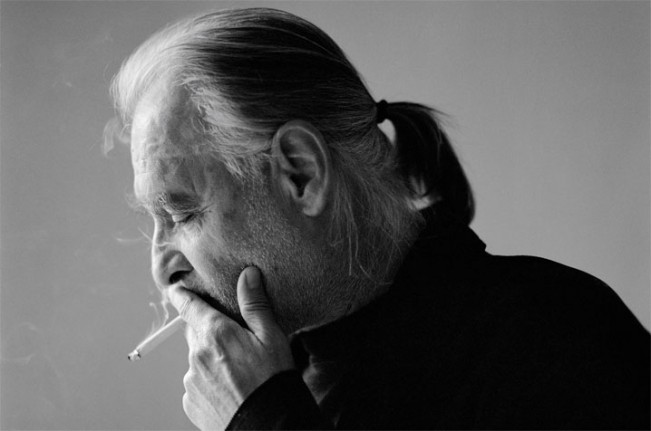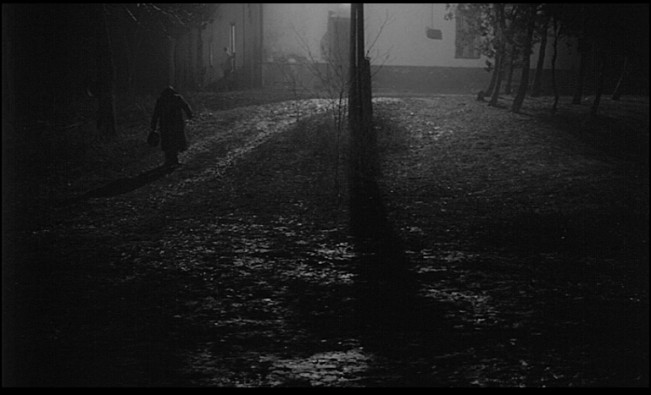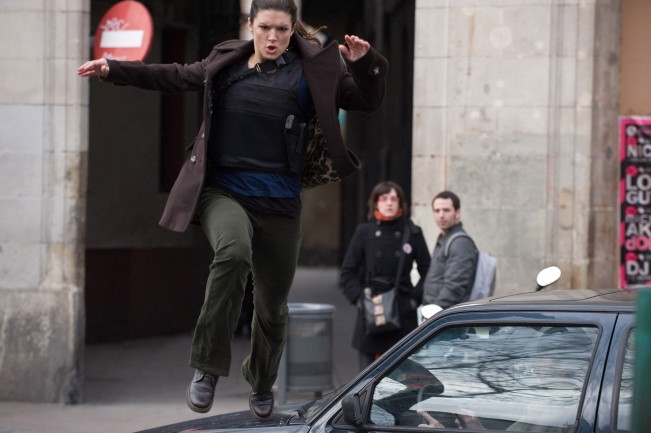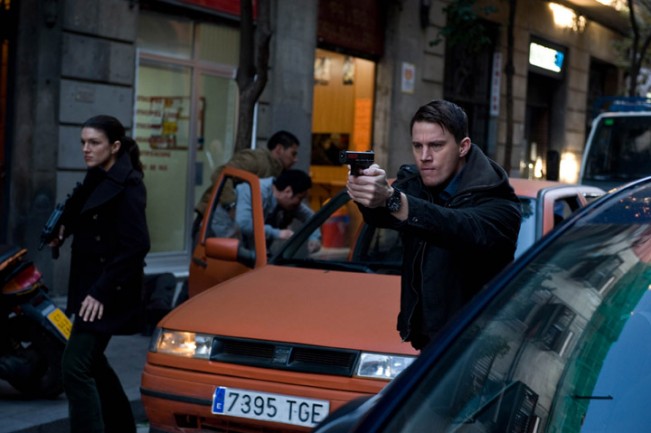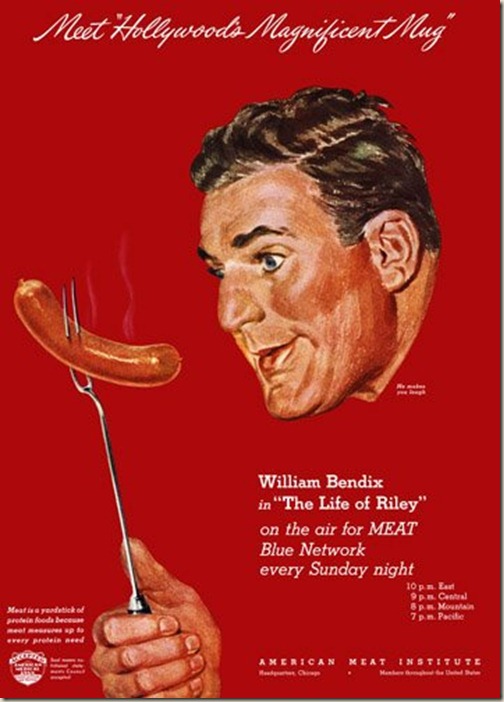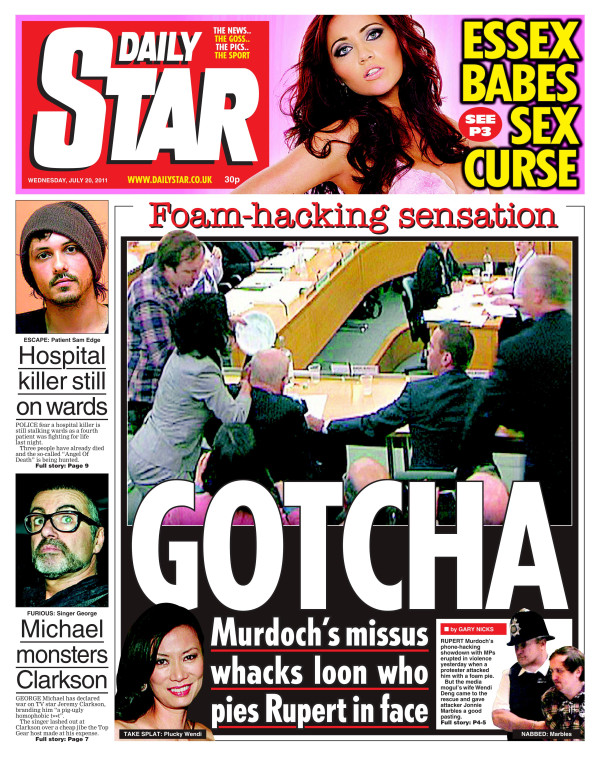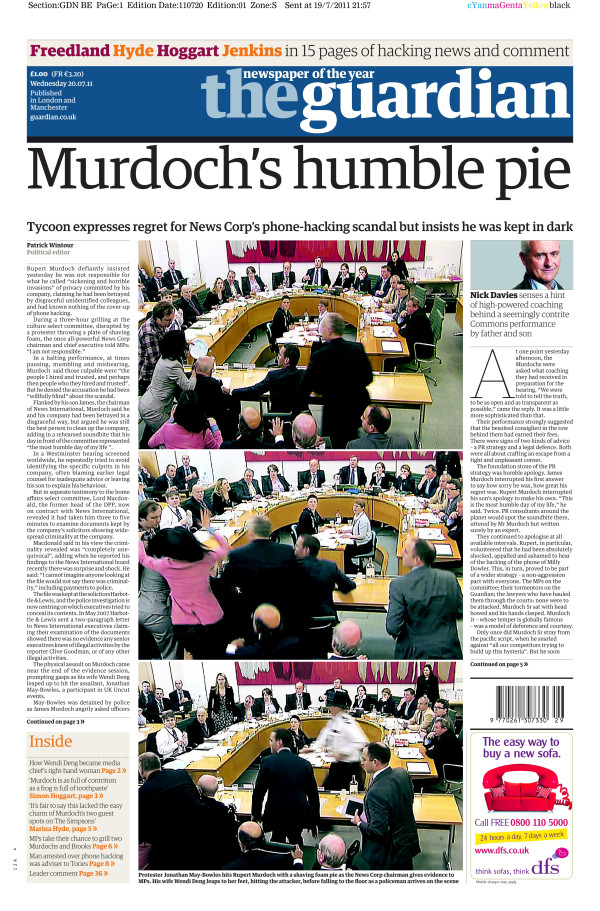Movie City Indie Archive for July, 2011
Jesse Eisenberg Talks “Shush!” To Alamo Drafthouse
Miu Miu Presents MUTA, A New Film By Lucrecia Martel
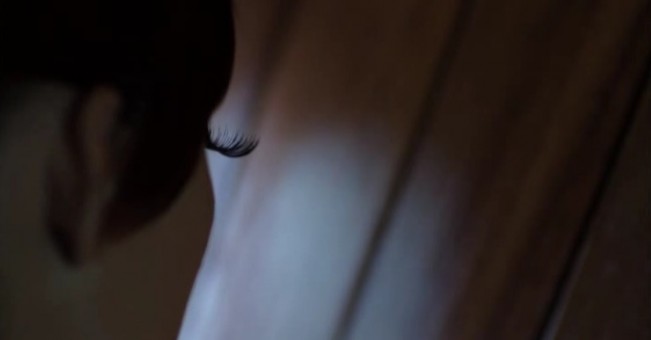 As the second of a series of sponsored short films, “The Women’s Tales,” Lucrecia Martel’s Muta is linked here. It’s a glam catfight that toys with futuristic… fashion?
As the second of a series of sponsored short films, “The Women’s Tales,” Lucrecia Martel’s Muta is linked here. It’s a glam catfight that toys with futuristic… fashion?
On Béla Tarr turning 56
http://www.youtube.com/watch?v=VFmu7BYbthY&feature=player_embedded
The opening scene of The Werckmeister Harmonies.
From a Gus Van Sant post over at Dennis Cooper‘s blog from earlier this year: “I have been influenced by Béla Tarr’s films and after reviewing the last three works Damnation, Satantango, and Werckmeister Harmonies, I find myself attempting to rethink film grammar and the effect industry has had on it. This is the way I see it. Cinema started as simple single-shot full-length proscenium compositions resembling theater, the only thing that it could find to reference to commercialize itself. By the next twenty years there was a new vocabulary. The close up, montage, and parallel storytelling fragmented the continuity of the previous proscenium-encased static-frame full-figure images. Separate fragments were now placed together to form meaning, the director could play with time and cinematic space. It was exciting. Was this an absolute inevitable direction or just one road cinema chose to take?”
I believe these cinematic innovations complimented industry and created an Industrial Vocabulary. The director could tell you how to think about scenes by the way he played with separate pieces. He could control his characters, he could control time and story, and he could control you. Left behind were the proscenium and the static take, which were old-fashioned.
Things were modern, things were easier, like doing your laundry, there was a washing machine now that would do it for you. The modern cinema was an invention that could think for you, you didn’t have to do in anymore, like in the theater.
http://www.youtube.com/watch?v=TtSp3MpWOIc&feature=player_embedded
The Cinema of Industry has progressed into mega-industry and mega-cinema but remaining ideally the same? The cinematic vocabulary of a 2001 television show like ‘Ally McBeal’ is virtually the same as Birth of a Nation’s. It is no surprise that Citizen Kane has been considered the greatest film of all time, a film about selling oneself down the river along with the copper, coal and timber while nostalgically longing for a lost Victorian era, and film vocabulary’s original beginnings, a Rosebud, that has been left behind in another century.
Béla’s stuff seems to be a successful and authentic departure, a wholly other cinema beginning over again. A cinema that needed to come from outside our Western Culture, a lost Rosebud, one of the many directions cinema might have before we sold ourselves down the river.
Béla’s creations use static full figure landscapes, as if referencing the 1800s steam engine pulling into a station that would force audience members standing in the gallery to run for the exit so they wouldn’t get hit by the train. Somehow Béla has gotten himself back there psychically and learned things all over again as if modern cinema had never happened. An angry crowd marches down a street to burn down the hospital in Werckmeister Harmonies, a shot that lasts about five minutes. When asked after a screening why the shot of the crowd lasted for so long, Béla answered, “because it was a long way.” The question was an honest one, why would the audience weaned on post modern industrial cinema sit and watch an angry mob for so long when they have been used to a shot that lasts only a couple of seconds, even a shot ten or fifteen seconds would be too long. But the answer, although funny, is also an honest one, it was a long enough way that to show it for five minutes it affects the way we think about the event, the mob, the march, the hospital. Not shorthanded, not as clipped as in Industrial Vocabulary, but played out lyrically and poetically, letting us in on the thoughts rather than just saying one thing like, the mob walked, rather; the mob walked, and grimaced and raised their torches, and walked in synchronized and unsynchronized steps, advanced, fell back, and when they arrived it had been a long way.
Hitchcock said in response to a question by François Truffaut that major stylistic film changes could happen through character, perhaps, but here is a very major change through ideas.
Béla’s works are organic and contemplative in their intentions rather than shortened and contemporary. They find themselves contemplating life in a way that is almost impossible watching an ordinary modern film. They get so much closer to the real rhythms of life that it is like seeing the birth of a new cinema. He is one of the few genuinely visionary filmmakers.”
At Senses of Cinema, Fergus Daly talks to Tarr.
“15 Years of Indie Film Distribution” Panel (83m)
On July 16, indieWIRE and Film Society of Lincoln Center convened “15 Years of Distribution,” a panel moderated by Dana Harris, featuring indie distrib bigs Richard Abramowitz, Amy Heller, Bingham Ray, Bob Berney, Ira Deutchman, Mark Urman, Arianna Bocco and Jeanne Berney.
Trailering 白蛇传说 (THE SORCERER AND THE WHITE SNAKE) with Jet Li
http://www.youtube.com/watch?v=_t4vYoPzpJ4&feature=player_embedded
1 Comment »The Hack: Piecing the Pie
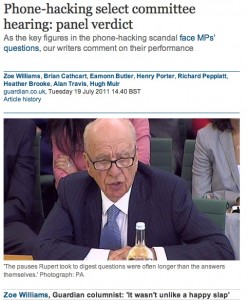 HAVE A SLICE: Tick-tocks of the proceedings in committee from the New York Times and the Guardian. ProPublica runs the stats on the hacking-spying scandal. Poynter offers a five-minute “explainer” of what’s at stake. The Guardian empaneled writers Zoe Williams, Brian Cathcart, Eamonn Butler, Henry Porter, Richard Peppiatt, Heather Brooke, Alan Travis, and Hugh Muir to offer insta-insight from the NewsInt bake-off in Parliament. Williams on Wendi Deng’s reaction to the Secret Flan: “You could fake a lot, maritally, but I don’t think you could fake the rawness of that defence.” Cathcart: “There is meat here in the detail. Roll on the public inquiry – assuming the government gets the terms of reference right.” Butler, of the Adam Smith Institute, “a UK policy institute supporting free market economy,” works the “as we all know” style of assertions hard: “Rupert Murdoch came over as a person who wanted his newspapers to be a force for good… Murdoch always ran his company on trust–as a good business leader has to do. You can’t know every detail of what goes on in a vast international business… delegation is the only way to run such a company. Murdoch senior looked like a man in despair: not just about the breach of trust with the hacking victims, but the breach of his trust, and of his readers, by his managers and their subordinates.” The NY Times’ Ravi Somaiya tweets: “Summary of today’s #notw testimony: we weren’t involved, weren’t there, didn’t know, nobody told us, sorry.”
HAVE A SLICE: Tick-tocks of the proceedings in committee from the New York Times and the Guardian. ProPublica runs the stats on the hacking-spying scandal. Poynter offers a five-minute “explainer” of what’s at stake. The Guardian empaneled writers Zoe Williams, Brian Cathcart, Eamonn Butler, Henry Porter, Richard Peppiatt, Heather Brooke, Alan Travis, and Hugh Muir to offer insta-insight from the NewsInt bake-off in Parliament. Williams on Wendi Deng’s reaction to the Secret Flan: “You could fake a lot, maritally, but I don’t think you could fake the rawness of that defence.” Cathcart: “There is meat here in the detail. Roll on the public inquiry – assuming the government gets the terms of reference right.” Butler, of the Adam Smith Institute, “a UK policy institute supporting free market economy,” works the “as we all know” style of assertions hard: “Rupert Murdoch came over as a person who wanted his newspapers to be a force for good… Murdoch always ran his company on trust–as a good business leader has to do. You can’t know every detail of what goes on in a vast international business… delegation is the only way to run such a company. Murdoch senior looked like a man in despair: not just about the breach of trust with the hacking victims, but the breach of his trust, and of his readers, by his managers and their subordinates.” The NY Times’ Ravi Somaiya tweets: “Summary of today’s #notw testimony: we weren’t involved, weren’t there, didn’t know, nobody told us, sorry.”
HEAR, HEARING: NYTimes’ Graham Bowley and Alan Cowell think Scotland Yard did not come off well. ANONYMOUS CLAIMS it has News of the World and Sun emails that will be released shortly.
MEANWHILE: FoxNews.com reports “exclusively” that a dozen alleged members of Anonymous have been arrested by the FBI.
FLAN-FLINGER FLUFFS: “I’m sure you’ll appreciate the irony, but I cannot comment on an ongoing police investigation.” (Vid below.)
The Guardian has a rough-‘n’-ready profile of comedian-activist “Jonnie Marbles.”
A Wikipedia list of people who have been pied. (Via @brianstelter.)
MURDOCH STYLIN’: Journalist Sarah Ellison talked to director Andrew Rossi and producer Kate Novack about Murdoch’s style during the production of Page One: Inside the New York Times. (3’09” vid) Simon Dumenco offers nine further “lowlights and highlights” of the Murdoch testimony.
A camera operator finds an unfortunate framing for Rupert Murdoch in his post-flan testimony.
WENDI DENG’s FIRST FILM as a producer, Snow Flower And The Secret Fan, just opened from Fox Searchlight. The Wall Street Journal “has tea” with its cast.
THE JOURNAL PROFILED DENG IN NOVEMBER 2000 in a 2,700-word piece by John Lippman, Leslie Chang and Robert Frank.
NOTHING TO SEE HERE, MOVE ALONG: SF Weekly’s Dan Mitchell wants his Twitter feed back; he thinks it’s all too much: “[L]et’s get a grip. Must every detail of the parliamentary hearings be broadcasted in real time by hundreds of people, basically hijacking the news… I’ll give media reporters a pass, I suppose (and yet, even there, what’s the point?)… The technology site AllThingsD (run by Murdoch’s Wall Street Journal) is live-blogging the hearings, as if they were on a par with John Dean revealing the crimes committed by the Nixon Administration… Still. All that’s happening here is that a couple of execs are lying and covering their asses. It’s news, but it’s not earth-shattering news.”
Wendy Bacon at Australia’s New Matilda sees things differently from Down Under. “The key point in this saga for Australia—there is no competition here… The Australian arm of News Corporation controls almost 70 per cent of the newspaper market, the only newspaper in four capital cities, a big chunk of the suburban market and key regional papers. Tabloid journalism in Australia is controlled by News Ltd, each paper having its own city market to itself. The company also has radio interests, a share of Sky TV (which is closely integrated with its international partner in the UK), Foxtel and part of the book and magazine markets. It is seeking to take over cable TV Austar and partly owns the National Rugby League. It also owns Melbourne Storm which was involved in salary cap scandal last year.”
“The Hack” is an occasional column of media commentary.
The Hack: Pre-Parliament Edition
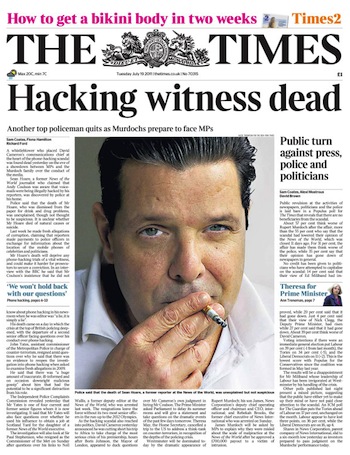 “AT 2.30 ON TUESDAY 19 JULY, THE STORY THAT HAS SPREAD ITSELF OVER THE NEWS FOR WEEKS will reach one of its most spectacular moments,” writes John Harris in the Guardian. “An elderly American-Australian billionaire and his 38-year-old son will be transported to the Houses of Parliament, along with a 43-year-old woman from Warrington, long used to the company of the rich and powerful, but freshly departed from her high-powered job and just released from a central-London police station. There, they will face a committee of MPs, from a wide array of backgrounds–among them, a trade unionist’s son from Kidderminster; a privately educated chick-lit novelist who has recently married the manager of Metallica and the Red Hot Chili Peppers; and a woman who was once the finance director for the company that makes Mars bars.” [More at the link.] The Wall Street Journal has a clean, effective infographic identifying primary players. Sky News fills out the roster of interrogators. Sky also reports that “Brooks’ Arrest May Demand Ex-Editor’s Silence.”
“AT 2.30 ON TUESDAY 19 JULY, THE STORY THAT HAS SPREAD ITSELF OVER THE NEWS FOR WEEKS will reach one of its most spectacular moments,” writes John Harris in the Guardian. “An elderly American-Australian billionaire and his 38-year-old son will be transported to the Houses of Parliament, along with a 43-year-old woman from Warrington, long used to the company of the rich and powerful, but freshly departed from her high-powered job and just released from a central-London police station. There, they will face a committee of MPs, from a wide array of backgrounds–among them, a trade unionist’s son from Kidderminster; a privately educated chick-lit novelist who has recently married the manager of Metallica and the Red Hot Chili Peppers; and a woman who was once the finance director for the company that makes Mars bars.” [More at the link.] The Wall Street Journal has a clean, effective infographic identifying primary players. Sky News fills out the roster of interrogators. Sky also reports that “Brooks’ Arrest May Demand Ex-Editor’s Silence.”
REUTERS AND BLOOMBERG RAN CONFLICTING STORIES on Monday night about NewsCorp personnel, each citing anonymous sources. Reuters: “The board member and another person familiar with the company’s plans… denied a Bloomberg report that suggested the board is considering replacing [Rupert] Murdoch depending on his performance before the British Parliament committee on Tuesday. The report said the News Corp board met on Monday to discuss replacing Murdoch but both people denied this ‘There was no meeting of independent directors. This board totally supports the top management. We’re united behind him,’ the board member said.” In March, the Los Angeles Times‘ Joe Flint and Dawn C. Chmielewski profiled NewsCorp’s number two, Chase Carey, who figured in Monday’s micro-managing of rumor. LA Times’ Patrick Goldstein compares Murdoch to J. K. Rowling’s Voldemort in a torturous takeout.
WHAT’S IN STORE TUESDAY AFTERNOON IN LONDON? Bloomberg reports James Murdoch will face questions about payments. Forbes’ Robert Lenzner suggests “Rebekah Brooks could find herself in the very same ticklish pickle that DeeDee Brooks, the President of Sothebys found herself in when the government began its investigation of price fixing in the art world. To ensure she would not be subject to a prison sentence herself, [the prior] Ms. Brooks decided the only course of action was to explain that she was only following the orders of Sothebys’ owner and chairman billionaire A. Alfred Taubman.” MarketWatch‘s Jon Friedman suggests “How Murdoch can satisfy Wall Street”: “Maintaining Wall Street’s confidence will depend on News Corp.’s business accomplishments. Money managers aren’t a sentimental bunch and they care about one thing: numbers. When it comes to investing, they go with their heads, not their hearts. They’ll expect Murdoch to begin the healing process in his address.”
NY TIMES BUSINESS PAGES FIND OPTIMISM in support for the Murdochs from Tom Perkins, a Silicon Valley VC and News Corporation independent board member. “Even by recent standards, it was a long day for Rupert Murdoch. The share price of News Corporation dropped another 4.29%, several of his largest newspaper Web sites were hacked and he spent much of his time cramming for his appearance before Parliament on Tuesday to answer questions about the hacking scandal that has engulfed his company and his family… ‘We’ve known about the phone hacking for a long time[,’ Perkins said. ‘]We were told and top management, I’m sure, believed that the early news was the whole story. There’s no reason to believe top management was lying. That’s my very strong belief. We all felt it was inexcusable for sure. We paid some money out, fired some people and we thought we’d fixed it.”
WEBSITES FOR THE SUN and the Times of London, among News Int’l’s remaining papers, were hacked Monday night. The Guardian collects more tributes to Sean Hoare, the former NOTW and Sun journo who was found dead in his home on Monday morning: “Sean Hoare was trying to be honest, struggling with addiction. But he was a good man. My God.”… “An old fashioned Fleet Street character, always in the pub but always with a story.” And the tale Simon Ricketts tells you ought to read: it’s the classical, perfected telling of an old hack helping a new hand with a story handed over “on a plate.” “I shall raise a glass or 12 tonight to him,” Ricketts offers after relating the punchy tale.
 NATIONAL PAPER THE AUSTRALIAN, another Murdoch title, was even less kind toward those challenging the company than the Wall Street Journal had been on Monday morning. “These excitable hacks do a grave injustice to the freedom-hungry masses of yesteryear by lumping their struggles in with the media-led agitation against Murdoch,” writes Brian O’Neill. “For no amount of shameless plundering of past democratic moments can disguise the fact that what we are witnessing in Britain is a media coup led by a tiny gaggle of illiberal liberals. This not a mass movement for change, still less is it something akin to the collapse of Stalinism in Europe in 1989. Rather, the anti-Murdoch moral crusade represents the convergence of various minority interests, and the biggest loser won’t be Murdoch but media freedom. So many commentators have allowed themselves to be swallowed by schadenfreude that they have lost the ability to step back and ask: what is motoring this crusade and what will its impact be?”
NATIONAL PAPER THE AUSTRALIAN, another Murdoch title, was even less kind toward those challenging the company than the Wall Street Journal had been on Monday morning. “These excitable hacks do a grave injustice to the freedom-hungry masses of yesteryear by lumping their struggles in with the media-led agitation against Murdoch,” writes Brian O’Neill. “For no amount of shameless plundering of past democratic moments can disguise the fact that what we are witnessing in Britain is a media coup led by a tiny gaggle of illiberal liberals. This not a mass movement for change, still less is it something akin to the collapse of Stalinism in Europe in 1989. Rather, the anti-Murdoch moral crusade represents the convergence of various minority interests, and the biggest loser won’t be Murdoch but media freedom. So many commentators have allowed themselves to be swallowed by schadenfreude that they have lost the ability to step back and ask: what is motoring this crusade and what will its impact be?”
ONE OUTSIDER’s SUPPOSITION: Eric Boehlert, of Media Matters, who tweeted, “If Murdoch goes, the @nypost will cease to exist. No sane CEO would keep it running in the red.” The Journal’s James Taranto goes on a spirited Taranto-tella against the New York Times and whether or not the WSJ misuses the word “Democrat” (punctilious details at the link): “Joe Nocera, who recently replaced either Frank Rich or Bob Herbert as a New York Times columnist, over the weekend took aim at the competition, writing that ‘The Wall Street Journal has been Fox-ified’ since the December 2007 acquisition of Dow Jones & Co. by News Corp., which also owns Fox News Channel. Nocera claims that the news pages of the Journal have undergone a ‘subtle’ and ‘insidious’ change… [F]or Nocera to bad-mouth the competition based on such shoddy evidence is rather a more serious lapse.”
NOCERA WEIGHS IN, WEIGHTILY, on Tuesday’s NY Times op-ed page: “Although I generally admire entrepreneurs who build giant companies, Rupert Murdoch, despite giving us Homer Simpson, generally has not been a force for good over the course of his long career. His Bill O’Reilly-ed, Glenn Beck-ed Fox News has done a great deal to coarsen the political discourse. His tabloids have lowered the standards of journalism on three continents—and routinely broken the law on at least one of them. He had dumbed down his prestige papers, like The Times of London. He has run roughshod over cross-ownership rules meant to prevent one man or company from having too much power—and then used his lobbying might to get those rules diluted. He has put kowtowing to China ahead of freedom of the press, even killing a book set to be published by his HarperCollins unit that the Chinese authorities objected to. He has consistently used his media properties to reward allies and punish enemies. It’s a long list.”
ALSO AT THE JOURNAL, Bret Stephens compares News of the World’s phone spying to WikiLeaks. “The easy answer is that the news revealed by WikiLeaks was in the public interest, whereas what was disclosed by [NOTW] was merely of interest to the public. By this reckoning, if it’s a great matter of state, and especially if it’s a government secret, it’s fair game. Not so if it’s just so much tittle-tattle about essentially private affairs. You can see the attraction of this argument—particularly if, like Mr. Assange, you are trying to fight extradition to Sweden on pending rape charges that you consider 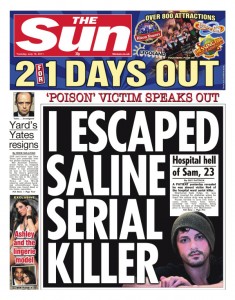 unworthy of public notice… It’s probably inevitable that this column will be read in some quarters as shilling for [Murdoch]. Not at all: I have nothing but contempt for the hack journalism practiced by some of the Murdoch titles. But my contempt goes double for the self-appointed media paragons who saw little amiss with Mr. Assange…”
unworthy of public notice… It’s probably inevitable that this column will be read in some quarters as shilling for [Murdoch]. Not at all: I have nothing but contempt for the hack journalism practiced by some of the Murdoch titles. But my contempt goes double for the self-appointed media paragons who saw little amiss with Mr. Assange…”
ROBERT POLLOCK, WSJ EDITORIAL FEATURES EDITOR, cites Fox Broadcasting’s “The Simpsons” as an example of freedom at NewsCorp. “In the early 2000s, pre-Murdoch, I remember sitting on a journalism panel… listening to one of my fellow commenters rant about ‘corporate’ influence on the media. Never, I honestly replied, had I changed as much as a sentence because I felt such influence at the Journal. Would that change when Mr. Murdoch bought us? Naturally many of us were concerned. Everyone knows the Sulzbergers interfere in the New York Times… People who have never worked in large corporations or in government are often inclined to ascribe near magical powers of management to the people who lead them… Most people go about their business in semi-autonomous units, perhaps with a vague notion of pleasing someone distant up the chain of command, but most often with a simple desire to do their best job as they… see it. If you want an example of editorial independence at News Corp., look at how often ‘The Simpsons’ mock their broadcasters at Fox.”
A CALIFORNIA NEWSCORP SHAREHOLDER sues, alleging “gross mismanagement.” The Guardian’s Polly Toynbee considers possible UK political fallout, her article headlined, referring to Labour’s leader: “If Ed Miliband doesn’t flinch, he could well seize the day.” Meanwhile, for Tuesday’s International Herald Tribune, Roger Cohen sees “The Cameron Collapse.” (Cohen’s also found use for that ton of bricks that’s going ’round.) “Cameron lost it over Rupert Murdoch. He showed staggering lack of judgment in hiring Andy Coulson, the former [NOTW] editor, as his first director of communications… a hubristic decision made against the best advice and apparently with a dual aim: to show he was not an old Etonian “toff” and to get favorable treatment from the 37% of the British print media owned by Murdoch. He then spent a fair chunk of time during his first year in office in 26 meetings with various News Corp. honchos, including Rebekah Brooks, who was arrested by the British police Sunday. Brooks happened to be part of the Chipping Norton set, well described…. as ‘an incestuous collection of louche, affluent, power-hungry and amoral Londoners, located in and around the prime minister’s Oxfordshire constituency.'”
TUESDAY AFTERNOON’S TESTIMONY BEFORE COMMITTEE convenes in Portcullis Hall next to the Houses of Parliament Tuesday 2:30pm GMT. At this writing, it will be streamed, at least in part, starting 9:30am EDT/7:30am PDT on Fox, CNN, MSNBC, CSPAN3 and Current. There will be live-blogging, including by, ohno!, the reliably antagonistic Keith Olbermann.
Monday morning’s “The Hack” is here. Monday afternoon’s “The Hack” is here.
[Fleet Street wood via @SkyNews.]
“The Hack” is an occasional column of media commentary.





